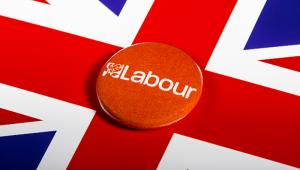
Melanie Dawes caused quite a stir this week. Speaking before the Public Accounts Committee the permanent secretary of MHCLG claimed the department believed “the sector as a whole is sustainable if the amount of resources that are available to it can deliver the statutory services which it is required to do”.
This provoked a furious reaction from across the sector. Jo Miller, president of SOLACE, seemed to speak for many when she described it as “an utterly depressing, negative & deficit based view that fails to take account of the brilliant work public servants do in #localgov day in day out to ensure our places and people thrive”.
Taken in their narrowest sense Ms Dawes’ comments might simply mean the department believes councils have sufficient resource to meet their minimum legal duties between now and the next spending review and that they do not expect any councils to fail in this period. To be fair I think that is what she meant (though I also think she may be wrong), rather than offering a broader definition of what constitutes sustainability for local government (or what local government is for).
Nonetheless, her comments are worth picking up on because of what they reveal about central government’s view of local government: that it is simply an extension of Whitehall’s writ, the agency responsible for the commissioning and delivery of state public services (or some of them) at a local level. And those services are simply, and minimally, about meeting need.
We need connected responses across the public realm that manage demand and build capacity within communities.
But of course local government is so much more than that (the clue’s in the name). It is also a democratic body that gives citizens and communities a voice and a way to exercise political agency to shape the places they live in. It’s how we instantiate our social contract; how we think about ourselves and others and our obligations to each other within society.
And from this flows a different view of public services: not just about meeting acute need but also about building places and communities and creating resilience.
Is that too utopian a view? Can we afford to talk about local government and local services in this way when resources are so tight? I think we can’t afford not to.
It is the needs-based services model that is eventually unsustainable. We know that the complexity of current public policy challenges is increasingly resistant to centralised state responses. We know that the demand curves in key areas like adult social services go through the roof over the next fifty years. You can’t address those challenges by doing more of what we do now or by doing it more efficiently.
We need connected responses across the public realm that manage demand and build capacity within communities. That can only come from a version of local government that is about bringing together the civic energy of local people and facilitating the sort of services that shape good communities and good places to live. Precisely the sorts of services that fall outside the statutory minimum (whatever that may be).
Local government that can just afford to deliver its statutory duties may be “sustainable” over the next two years. But it will not, it cannot, be sustainable for long.




















